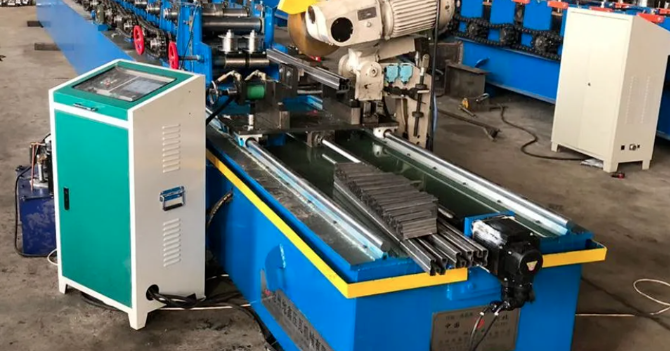
Posted on Sunday, September 29, 2024
Roll forming machines have become an essential tool across various industries due to their versatility, precision, and efficiency. These machines are used to shape and form metal into specific profiles by passing it through a series of rollers. From automotive manufacturing to construction, roll forming technology plays a critical role in producing high-quality metal components that are durable, cost-effective, and customizable. In this blog, we'll explore the wide-ranging applications of roll forming machines and how they support different industries.
The automotive industry is one of the largest sectors that relies on roll forming machines. Metal components used in vehicle frames, chassis, and other structural parts require precise shaping for strength and durability. Roll forming machines produce lightweight, high-strength parts that meet stringent safety and performance standards. Examples include door frames, roof supports, and crash rails.
Key benefits of roll forming for automotive manufacturing include:
In the construction industry, roll forming machines are indispensable for producing metal roofing, wall panels, purlins, and structural elements. They are commonly used to manufacture components for steel buildings, commercial structures, and residential homes. Custom roll forming machines allow for the creation of tailored profiles for specific building designs, helping contractors meet unique architectural requirements.
Applications in construction include:
The energy sector, including renewable energy projects, depends on roll forming machines to manufacture various metal components. Solar energy installations, for instance, require metal framing systems that can support solar panels. Wind turbine towers and transmission lines also utilize roll-formed components to ensure structural integrity and longevity.
Roll forming is essential in this sector because it:
Safety and durability are paramount in highway and transportation infrastructure. Roll forming machines are used to manufacture guardrails, barriers, signposts, and light poles. These components must withstand harsh weather conditions and heavy impact, making roll-formed metal ideal due to its strength and resilience.
The transportation infrastructure applications of roll forming include:
In the agriculture sector, roll forming machines are applied to produce various metal structures such as silos, barns, and greenhouses. Farmers rely on durable, weather-resistant metal components to build long-lasting agricultural infrastructure. Custom roll forming machines allow for the production of metal panels and framing systems designed to meet specific farming needs.
Key applications in agriculture:
Precision and strength are crucial in aerospace manufacturing. Roll forming machines are employed to produce lightweight yet strong components for aircraft fuselage, wings, and other structural parts. The ability to roll form metal with extreme accuracy makes these machines ideal for producing parts that meet the stringent regulations of the aerospace industry.
Benefits of roll forming in aerospace include:
Roll forming machines also play a role in the marine industry, producing corrosion-resistant metal components used in shipbuilding and offshore platforms. Metal profiles such as hull reinforcements, bulkheads, and structural frames are essential for the longevity and performance of ships and marine equipment.
Applications in the marine industry include:
The electrical and HVAC (heating, ventilation, and air conditioning) industries rely on roll forming machines to create conduits, ductwork, and other metal components. Roll-formed metal ensures that these systems are durable, lightweight, and easy to install, contributing to efficient electrical distribution and temperature control in buildings.
Applications in electrical and HVAC include:
Roll forming machines are incredibly versatile and play a critical role across numerous industries. Whether it's for automotive, construction, energy, or aerospace applications, the precision, cost-effectiveness, and customization options offered by roll forming technology make it indispensable in modern manufacturing. As industries continue to evolve and demand high-quality, efficient metal components, roll forming machines will remain at the forefront, driving innovation and supporting growth in various sectors.

Used Purlin Roll Forming Machines for Sale Worldwide
Posted on Sunday, January 25, 2026
Pre-Owned Roll Forming Machines for Purlin & Structural Steel Profiles

Used Roof Panel Roll Forming Machines for Sale Worldwide
Posted on Sunday, January 25, 2026
Pre-Owned Roll Forming Machines for Roofing Panel Production

Used Roll Forming Machines for Sale Worldwide
Posted on Tuesday, January 20, 2026
Pre-Owned Roll Forming Machines with Inspection, Verification & Global Support

Steel Coil Supply for Roll Forming Machines Worldwide
Posted on Tuesday, January 20, 2026
Reliable Steel Coil Supply for Roll Forming, Fabrication & Manufacturing Applications
Copyright 2026 © Machine Matcher.